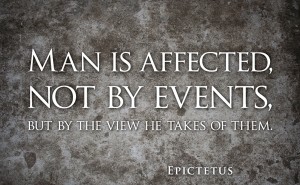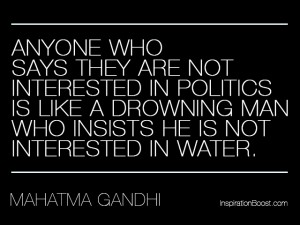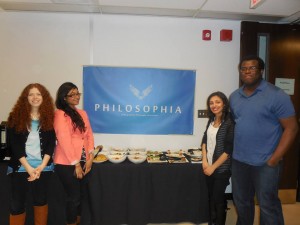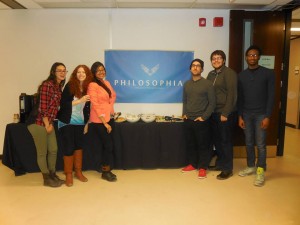10.00am – 10.30am
Registration and Light Breakfast
10.30am – 11.30am
KEYNOTE ADDRESS
Dr. Shyam Ranganathan
York University
Dr. Ranganathan is interested in non-ethnocentric, and non-anthropocentric models of thought and value. This interest is expressed in his explorations into cross cultural understanding and translation, and in normative questions of how we ought to live. Some examples of the confluence of these interests include his role as translator and commentator of Indian moral philosophy (Patañjali ‘s Yoga Sūtra, Penguin Black Classics 2008), but also work in contemporary analytic philosophy on the problem of translation and moral concepts in cross cultural settings (An Archimedean Point for Philosophy, Metaphilosophy 42:4, 479–519). His current research on similar lines includes editing a volume on Indian Ethics (forthcoming through Bloomsbury Publishers), and in-progress papers on cultural-pluralism and moral controversy.
11.30am – 12.00pm
Maor Levitin
York University
“Rethinking the Body: the Relevance of Solitary Language and Spaces”
The purpose of this paper is to situate the development of “existential language” within the experimental capacity, and movement, of bodies. I contend that, despite its relevance to material surroundings, such language is not reducible to a notion of materialism that favours the value of collectivism. Language contains the desire of individuals to advance themselves as authentic beings, which arises in response to the pressure they face through participation in society’s disunited space. In order to implicate the creative capacity of the body as meaningfully influential on individuals’ psychological struggle for independent valuation, I will analyze/develop Nietzsche’s conception of “art” and employ it as a model for independent valuation. I will emphasize the movement of this model away from attempts to theorize about language as a socially coherent phenomenon. Language reflects individuals’ panicked desire for independent valuation and for this reason invariably carries “authoritative accents.” In order to lead an interesting life, and break away from the temptation for comfortable universality that arises from the “competition” for meaning, one must learn to engage with the forces specific to her “becoming.”
12.00pm – 12:30pm
Jonas Monte
University of Ottawa
“Moral Subjectivism and Nietzsche’s Active Nihlism: Affirming the Supremacy of the Subject”
J. L. Mackie has proposed a case for Moral Subjectivism (MS) which asserts that there are neither transcendental standards nor objective moral values, but that all moral standards are man-made. He emphasizes the uniqueness of MS and highlights its difference from Moral Relativism. Still, MS tends to cause intellectual conflict in the subject due to the fact that it is a radical theory. It often provokes strong reactions, and subjects who encounter it, engage in imaginative exercises; many who accept this theory even suffer psychological conflicts. This paper argues that MS theory is the path to free the subject from standardized moral norms that limit human beings and prevent them from exercising their capacity for evolution. It also argues, to counter the negative connotations of MS, that Friedrich W. Nietzsche’s concepts of passive and active nihilism are necessary successive stages of passage for subjects who accept MS as they seek to affirm their autonomy.
12.30pm – 1:30pm
Lunch
1.30pm – 2.00pm
Parisa Samet
York University
“Simone de Beauvoir’s Existential Account of Oppression”
Among several famous French existentialists of her time Simone de Beauvoir offers an account of the existential nature of oppression within society. By examining her Ethics of Ambiguity we find a framework, which aids in understanding relationships between the oppressor and oppressed within different groups of society. The groups in discussion that Beauvoir advocates for are those who are oppressed as a result of race, sexuality and age. In reviewing the relationships between oppressor and oppressed in each of these groups we gain an analogous reading of Beauvoir’s ethics and her existential position on oppression.
2.00pm – 2.30pm
Marilena Danelon
York University
“David Lewis and the (Im)Possibility of Time Travel”
Is it possible to time travel into the past? David Lewis famously argued that no logical contradiction is entailed in the Grandfather’s Paradox. In Part I of this paper, I outline Lewis’s defense of the non-contradiction of time travel in the Grandfather’s Paradox. In Part II, I argue that Lewis’s argument leaves open a problematic possibility: that one could possibly go into the past and perform acts other than the Grandfather’s Paradox. I argue that under no circumstances could a person perform an action in the past. In Part III, I argue that not only is there no possibility to act in the past, but there’s no ability to, either. In Part IV, I address potential criticisms, and in Part V, I conclude that backwards time travel is logically impossible.
2.30pm – 2.40pm
Refreshment Break
2.40pm – 3.10pm
Jessica Ellis
York University
“Rethinking the Body: The Body as Ethological Instrument”
To address and incorporate more open ethological and environmental epistemologies, it is required to look beyond the usual analytical paradigm, but to also not fall into the often vague force-politics of postmodern thought. Through a move to involve the body in interpreting morality, as we try to distance it from the “rational” Western white male, we can open perceptions to the our corporeal existence, which grounds us in an external world and yet is intervolved with conscious space. Since our bodies are our “first reality,” this move helps us contest epistemologies of universality, expertise and sameness, and to valorize the difference and specificities of our liminal spaces. By virtue of phenomenological interpretations not being as removed from context and experience as are objective theories, and their resistance to theories that completely dismantle structures, we can view them at attempts to confront conventions and simultaneously as a move towards the rejection of scientific certainty. The processes of the body arise as a structural metaphor for the efficient interpretation of external and internal datum, once we acknowledge it as an ethological instrument. This corporeal move also affirms feminist and postcolonial critiques as it opens ethics to the existential other and provides an active philosophy that speaks to our nature.
3.10pm – 3.40pm
Moiez Ismail
York University
“Absolute Simultaneity and Absolute Present: A Defence of Special Theory of Relativity”
This paper argues against two positions: first, against Tooley`s who thinks that absolute simultaneity is true because Quantum Mechanics is a more accurate picture of physical reality than Special Theory of Relativity. The other position is that absolute Present is true; we must revise notions of absolute simultaneity such that the Special Theory of Relativity is not abandoned. Note: this paper does not argue that empirical matters settle metaphysical questions once and for all. This paper basis its argument on the following points: 1) Godfrey-Smith’s causal theory of the present is inadequate in trying to reconcile STR and the absolute Present by way of an omniscient/God-view like picture of the universe, 2) Tooley makes a categorical mistaken when considering simultaneous events and possibilities. The crux of the paper is that violations of the speed of light are not possible and so neither is simultaneity nor the Present holding across space-time.
3.40pm – 4.10pm
Callum Haslam
Trent University
“Whether Individuals With Psychopathic Personality Disorder Are Able To Be Virtuous In Relation To Aristotle’s Understandings Of Courage And Friendship Presented In The Nichomachean Ethics”
This paper examines the psychopath’s ability to be virtuous in regards to Aristotle’s conception of friendship and courage outlined in the “Nicomachean Ethics”. Are psychopaths capable of being virtuous citizens in spite of their psychological abnormalities, and does Aristotle’s conception of the virtuous person outlined in the Nicomachean Ethics allow the psychopath to be considered virtuous specifically in regards to the concepts of friendship and courage? My thesis states that although the psychopath is able to engage in the best form of courage, they are ultimately barred from being virtuous since they cannot maintain social interactions such as friendship. I also argue that in spite of the psychopath’s ability to show the best kind of courage, their reckless self interest and disregard for social norms bars them from exhibiting this courage in the right way. Since they are unable to properly show both courage and friendship, I conclude that psychopaths cannot be virtuous under Aristotle’s account. To support my thesis, I refer to the works “The Mask Of Sanity” by Hervey Cleckley, and “The Wisdom Of Psychopaths” by Kevin Dutton.
4.10pm – 4.15pm
Refreshment Break
4.15pm – 4.15pm
Giancarlo Randazzo
York University
“Renascent Enlightenment II: Foundations of Transnational Justice”
Much has been written about ethical values which have now landed us in a time where a deeper level of contextual analysis can be achieved and must always be stressed. This level allows us to inspect notions of justice under greater light. This paper treks through various explanations of moral tenets and their groundings (e.g., communtarian) and arrives at a conclusion that rekindles Kantian philosophy. The empirical occurrence of globalization and multiculturalism are forcing our philosophical conceptualizations and physical borders beyond their current understanding. This paper shows how human societies of both past and present have their strong foot planted in a state of nature and the only way to overcome this boundary is to achieve a status of a world governing body that arises from a moral obligation to do so and completes this task by way of our rational capacity. This forces us to further examine the distinction between the natural environment and our subjective selves and incorporates our life experiences and choices into the content of morality.
4.45pm – 5.15pm
Neil J. H. Kim
University of British Columbia
“What is a Guilty Pleasure?”
In this paper I examine why we describe certain things, whether they be films, songs, or paintings, as guilty pleasures. First, I will outline some basic concepts in aesthetic philosophy related to guilty pleasures, namely, aesthetically appreciating some object and responding to it as a subject. In doing so, I will argue that guilty pleasures are defined by a particular way we respond to artistically created things. Specifically, I will put forth the case that guilty pleasures are characterized by how our judgment of an object’s beauty causes us to feel guilty about enjoying that object. As such, I believe moral sentiments and beliefs are at the heart of why we call things guilty pleasures. If I am right, in further saying that these moral dispositions are not obviously true or reliable, it appears we have some reason to enjoy our own personal “guilty pleasures” without any of the guilt.
5.15pm
Reception




